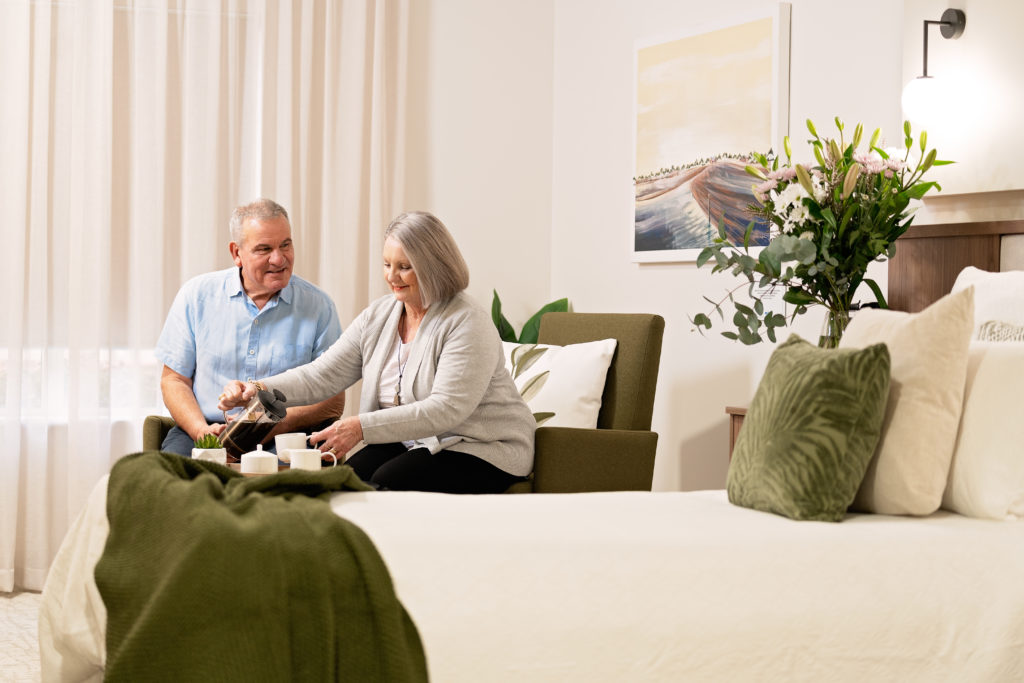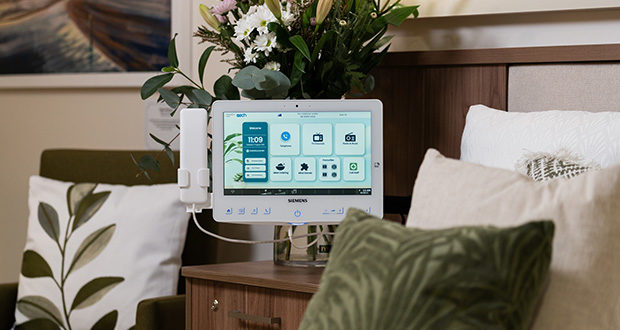An aged care provider is breaking new ground in offering respite and transitional care in a hotel-like environment.
A national lack of short-term care has been reported as our aging population's needs are changing.
South Australian home care provider ECH noticed the gap in the market and built a first-of-its-kind 'Care Hotel', a 16-suite building catering to short-term respite and transitional care.
The hotel's first 12 months since opening on 5 July last year has been a great success.
"I think this is a needed service," ECH's chief executive Claire Scapinello told Aged Care Insite.
"There are limited options for short-term stay around transitioning from other care models like hospitals or rehabilitation and assisting, and then confidently getting people back home.
"The hotel also provides short-term respite for carers without their loved ones having to move into residential aged care for an extended period."
Through MyAgedCare, the government is funding providers to deliver short-term services such as respite and transitional care.
A person can claim up to 63 days of subsidised residential respite in a financial year.
To meet the changing aged care landscape, Claire said we need to rethink short-term care and find alternatives.
"The focus has shifted towards people wanting to stay home longer," she said.
"The residential aged care environment also has become higher care compared to five or ten years ago.
"So we're hoping that the Care Hotel is filling in a gap around when you need respite and do not want to go into a residential aged care facility."
One of the first and most recent reports on short-term care, the 2020 survey from the Royal Commission into Aged Care reported little is known about Australia's quality of respite and transitional care. The survey found that 85 per cent of the Commonwealth Home Support Programme (CHSP) and 75 per cent of residential respite clients felt their needs were unmet when receiving care.

They also voiced concerns over a lack of choice, mainly regarding uncertainty about entitlements and the choice of providers.
"It's about how we prevent older people needing to go to the hospital by providing a different care option for recovery," Claire said.
"And it's also about ensuring people have the space and the right services to re-enable them to go home."
People can also go into rehabilitation facilities when community and residential care are unavailable.
Claire herself spent time in a senior rehabilitation facility after a minor stroke and noticed how bad the level of care was.
"You go into this institutionalised environment where it's not homely, and it's not warm," Claire shared.
"And from a services perspective, it's just very black and white.
"I think that gave me a real appreciation of where I don't want to be and what we can create and change in the industry."
The Care Hotel has eight short-stay suites designed for people transitioning from the hospital and eight respite rooms for people living with dementia.
24/7 onsite nurses and technology are also available to monitor visitors' health.
Situated close to the city of Walkerville, all guest suites are private and include an ensuite bathroom and room service.
"It's ideally a short-term break, but it enables recharging of the carers who look after them," Claire said.
"It's in a warm homely environment, but you get all the benefits of being in a hotel where you can have room service."
Guests can also participate in social activities and a community day program that promotes positive mental and physical health.
The hotel has an onsite gym and allied health services, such as occupational therapy, physiotherapy and a dietitian.
"We wanted to offer food tailored to the guests – food that is actually nutritious and looked at from a dietician's perspective," Claire said.
Claire recently partnered with the University of South Australia to discuss innovating technology and personalised care.
They are also planning to start looking at developing new sites and opportunities.
"We certainly see the validity of the Care Hotel for the future, and I think there will be more people looking for options like Care Hotels," Claire said.
"People can continue to stay at home, but then for short stays, they're able to go and get the care and services and provide some much-needed respite for many of the carers that look after them."
Do you have an idea for a story?Email [email protected]
 Aged Care Insite Australia's number one aged care news source
Aged Care Insite Australia's number one aged care news source


“The Care Hotel has eight short-staysuites designed for people transitioning from the hospital and eight respite rooms for carers of people living with dementia.”
Could the author please clarify the sentence above…
It reads like the eight respite rooms are for the carers themselves, rather than the actual people living with dementia.